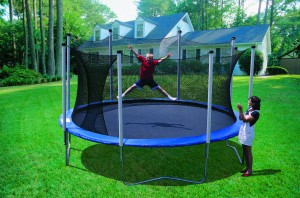By now, everyone has probable heard the saying, “Go take a run to blow off some steam”. Many people hold the belief that exercise can improve one’s mood. Speaking from a personal point of view, I have found this to be true. Nothing feels better than having a free hour to hit the gym after a long day of classes, homework, and studying. So, what is it about exercise that improves our moods?
According to CNN, when we spend time exercising, our body releases endorphins. Endorphins are chemicals that a part of the brain produces when our bodies are placed in stressful or painful situations. Psychologist J. Kip Matthews explains how endorphins are a sort of natural painkiller, because endorphins are produced by the body and work to reduce pain. Endorphins have been said to produce sort of a natural high, because of the good feeling that people get when endorphins are released throughout the body. Also according to CNN, a German study found that levels of endorphins in the body increase after a run. So, exercise releases endorphins which work to reduce pain in the body. This is likely to explain why people feel better after a tough workout. It seems that our bodies are trying to compensate for the pain that we feel while going through a rigorous workout or exercise circuit.
One very interesting study, conducted by the National Institute of Mental Health, attempted to prove that endorphins really do work to improve moods. Here’s a quick explanation of the study: The study was performed by gathering two groups of mice. One group was made up of very aggressive mice, while the other group was made up of timid mice. When placed together, the aggressive mice tended to bully the meeker mice. At first, the researchers did not allow the timid mice to run on the exercise wheel before interacting with the aggressive mice. When the timid mice were placed in the same area as the aggressive mice, the timid mice hid in the corners and acted very afraid. However, when the timid mice were given the chance to exercise before interacting with the aggressive mice, the timid mice no longer acted as afraid of the bigger mice. Instead, the timid mice simply tolerated the behavior of the larger, more aggressive mice. They no longer hid in the corners of the cage. The mice seemed to be in an overall better mood. I found this study to be extremely interesting, and the results of this experiment show that it is likely that endorphins do, indeed, improve the mood and overall well-being of living things. After exercising on the wheel, the timid mice were not as afraid of the larger mice, and they no longer felt threatened by their presence.
It is unlikely that the results of this experiment are due to chance, because time and time again, scientists have found that exercise, which releases endorphins, has a positive effect on people’s moods. I, for one, can attest to this. I strongly believe that there is nothing like a good workout at the gym to relieve stress, and make me feel better overall.















